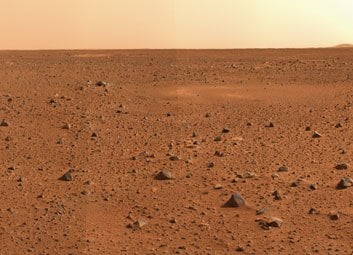Washington. America’s Space Agency’s Perseverance rover for the purpose for which it went to Mars, its first goal is going to be fulfilled. This NASA rover has collected various samples of rocks from the surface of Mars, which will be taken to Earth in the next mission. 17 months ago this rover was landed in the area named Jezero Crater. From what Percy has seen so far, scientists have confirmed that the rover is at the right place to search for life.
This rover is not looking for any organisms that are alive today, because the harsh environment of Mars makes their presence highly improbable. Rather, the rover is searching for traces of a biology that may have existed billions of years ago when Jezero was filled with a lake. Scientists hope that this ancient history is now recorded in amazing rock samples, which will be brought in in the next few years. David Shuster, a scientist at the University of California, Berkeley, said, “If conditions like Jezero have been found anywhere on Earth in the last 3.5 billion years, biology may have left its mark in these rocks, which we can see.”
NASA and the European Space Agency are making big plans to bring these samples to Earth. This work will include an interplanetary cargo, some helicopters and a rocket that will bring the samples to Earth by 2033. These will also contain igneous and volcanic rocks. Which Percy has drilled out of the crater. These will mostly tell the story of Jezero before the lake was filled with water. The specimens also have wildcat ridges. This rock was formed when the soil of Lake Jezero was evaporating. It was full of salt.
“All life as we know it is made of organics, but the important thing is that organic matter can also be made by processes that are chemical and not related to life,” says NASA scientist Sunanda Sharma.
This robot will soon move from this slope to a flat area where samples secured in titanium tubes can be deposited on the ground. They will then be properly preserved so that future missions can find them. However, scientists still want to collect more samples.
Was there a lake on Mars? NASA rover finds signs of life on rocks, shocking report
NASA director Lori Glaze says that not only did we go to the right place, but we sent the right spacecraft with the right science equipment to explore this wonderfully ancient atmosphere on Mars.
 Indian Thought Latest News & Views
Indian Thought Latest News & Views



